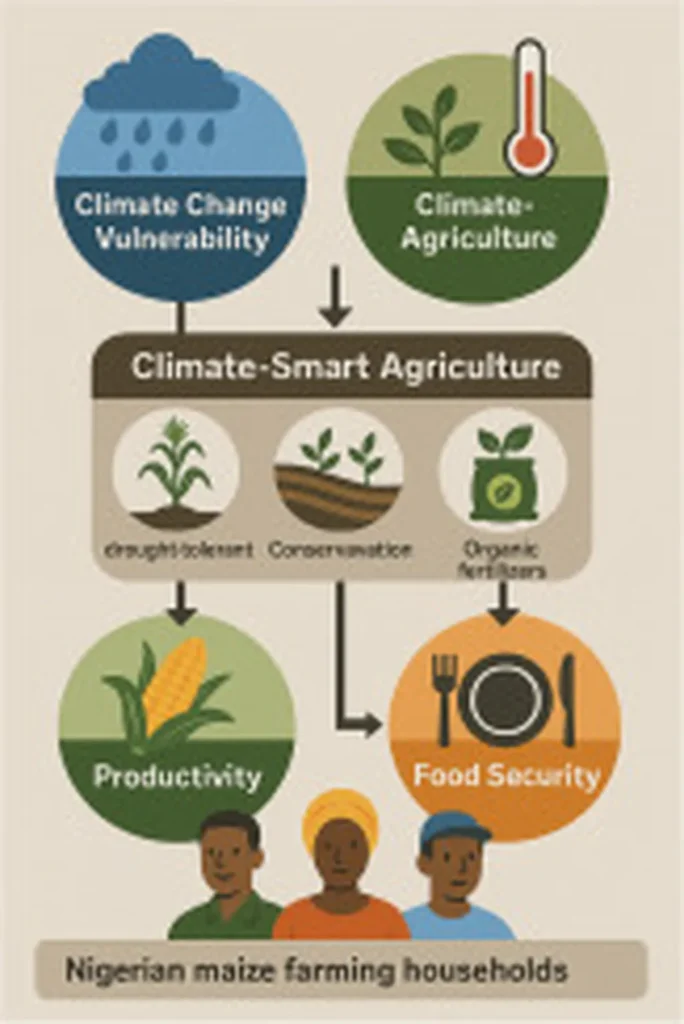In the heart of Nigeria’s savannas, farmers are facing an uncertain future as climate change threatens to disrupt maize production, a staple crop that feeds millions. A recent study published in the International Journal of Climate Change Strategies and Management offers a glimmer of hope, providing a roadmap for adapting to these changes and securing food supplies.
The research, led by Aloysius Alysius Beah from the Department of Horticulture at Njala University in Sierra Leone, and the Department of Inspection at the National Fertilizer Regulatory Agency in Freetown, Sierra Leone, uses the Agricultural Production Systems Simulator (APSIM) model to quantify the impacts of climate change on maize yields and explore adaptation strategies. The findings are both a warning and a call to action for the agriculture sector.
Under climate change scenarios, the study found that yields of both early and medium maturing maize varieties are expected to decrease. For the early variety, yields could decline by 1-4% under a low emissions scenario (RCP 4.5) and 3-8% under a high emissions scenario (RCP 8.5) in the near term (2010-2039). The medium variety could see decreases of 1-5% under RCP 4.5 and 2-11% under RCP 8.5 in the same period. These trends continue or worsen in the mid-century (2040-2069).
However, the study also shows that applying nitrogen (N) fertilizer at rates of 90-120 kg per hectare can minimize these effects across the three agroecological zones (AEZs) studied. This is a crucial finding, as it provides a practical, location-specific strategy for farmers to adapt to changing conditions.
“The results highlight the importance of strategic nitrogen fertilization and the use of drought-resistant maize varieties to maximize yields and ensure food security under climate change,” said Beah. “The government and relevant agencies should strengthen policies to help farmers adopt these adaptive strategies to cope with projected high temperatures and droughts.”
The commercial implications of this research are significant. Maize is a vital crop in Nigeria, both as a food source and as a commodity. The potential yield decreases outlined in the study could have serious economic consequences, affecting everything from farm incomes to food prices. Conversely, the adaptation strategies proposed offer opportunities for the agriculture sector to build resilience and maintain productivity.
The study’s use of the APSIM model is particularly noteworthy. This powerful tool allows for the simulation of complex agricultural systems, providing insights that would be difficult or impossible to obtain through field experiments alone. As such, it is likely to play an increasingly important role in shaping future agricultural research and policy.
Looking ahead, the research team hopes that their findings will inform policy decisions and encourage further investment in adaptive strategies. “We need to act now to prepare for the challenges posed by climate change,” said Beah. “This study is a step in the right direction, but there is still much work to be done.”
In the face of a changing climate, the agriculture sector must adapt or risk being left behind. This study provides a valuable contribution to the ongoing effort to build a more resilient and sustainable future for farming in Nigeria and beyond.

